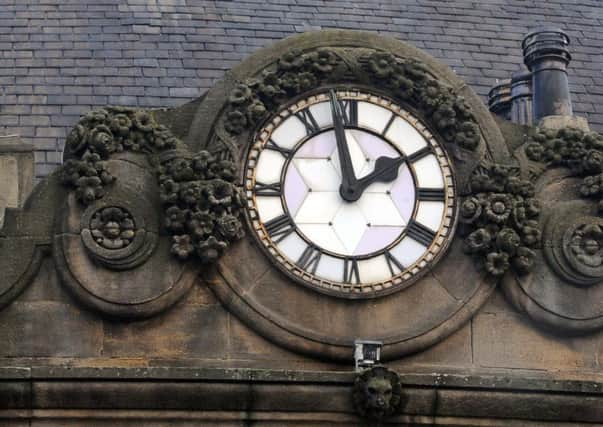Don't forget: the clocks go back this weekend


The time changes at 2am on Sunday, October 25, when all the clocks in your house should be set back an hour.
We’ll all be grateful for an extra hour in bed, or an extra 60 minutes to party the night away.
Advertisement
Hide AdAdvertisement
Hide AdBut if you’re like us, you never remember which direction to change the clocks. An easy way to remember is using the old (slightly Americanized we know!) phrase: “Spring forward, Fall back”. ‘Fall’ is the American word for autumn.
When the hour changes, we’ll be shifting from British Summer Time (BST) to Greenwich Mean Time (GMT).
The clocks always go forward an hour on the last weekend in March in spring, and go back on the last weekend of October in autumn.
So why do we change the clocks?
Experts remain divided over the benefits of changing the clocks.
Advertisement
Hide AdAdvertisement
Hide AdReasons given in favour are that it saves energy, reduces accidents and crime, and is good for business.
Those arguing against say there is no clear, decisive evidence it saves energy, and point to potential health risks.
Opinion is also divided on the exact origins of the moving of the clocks idea.
It was first introduced during World War One by Germany and Austria, and then by the allies, to save on coal usage.
Advertisement
Hide AdAdvertisement
Hide AdIt is thought to have been invented by George Vincent Hudson, a New Zealand entomologist, in 1895.
But British businessman William Willett is also credited with the idea as a way of getting up earlier and so having more daylight hours after work.
He spent much of his life lobbying for the idea but sadly, he died of the flu in 1915 at the age of 58, before it came into being a year later.
Germany adopted the clock-changing plan on April 30, 1916 when the clocks were set forward at 11pm. Britain followed a few weeks later on May 21.
While the UK has always had daylight savings time since it was first introduced, it came into widespread use across the world during the 1970s because of the energy crisis.